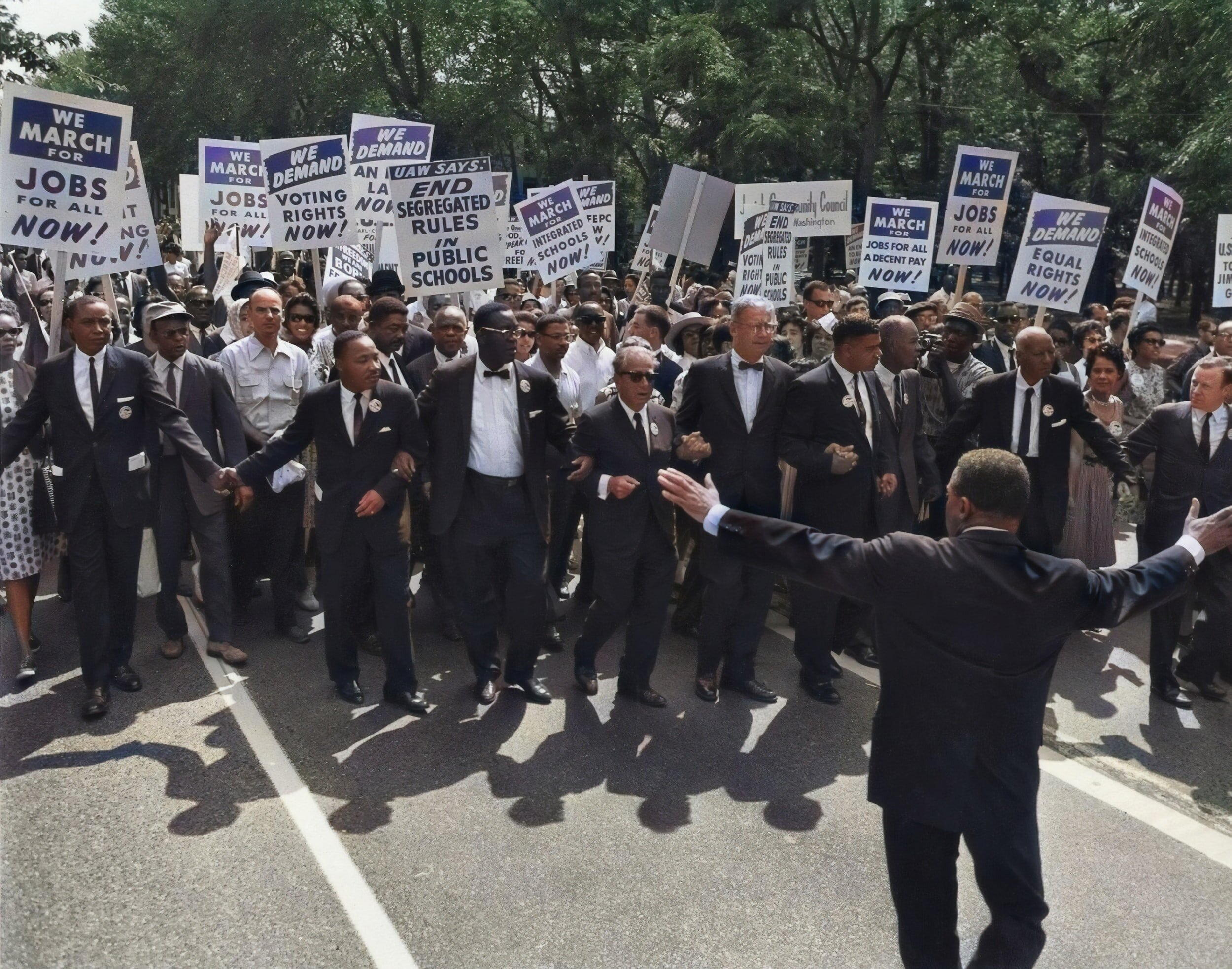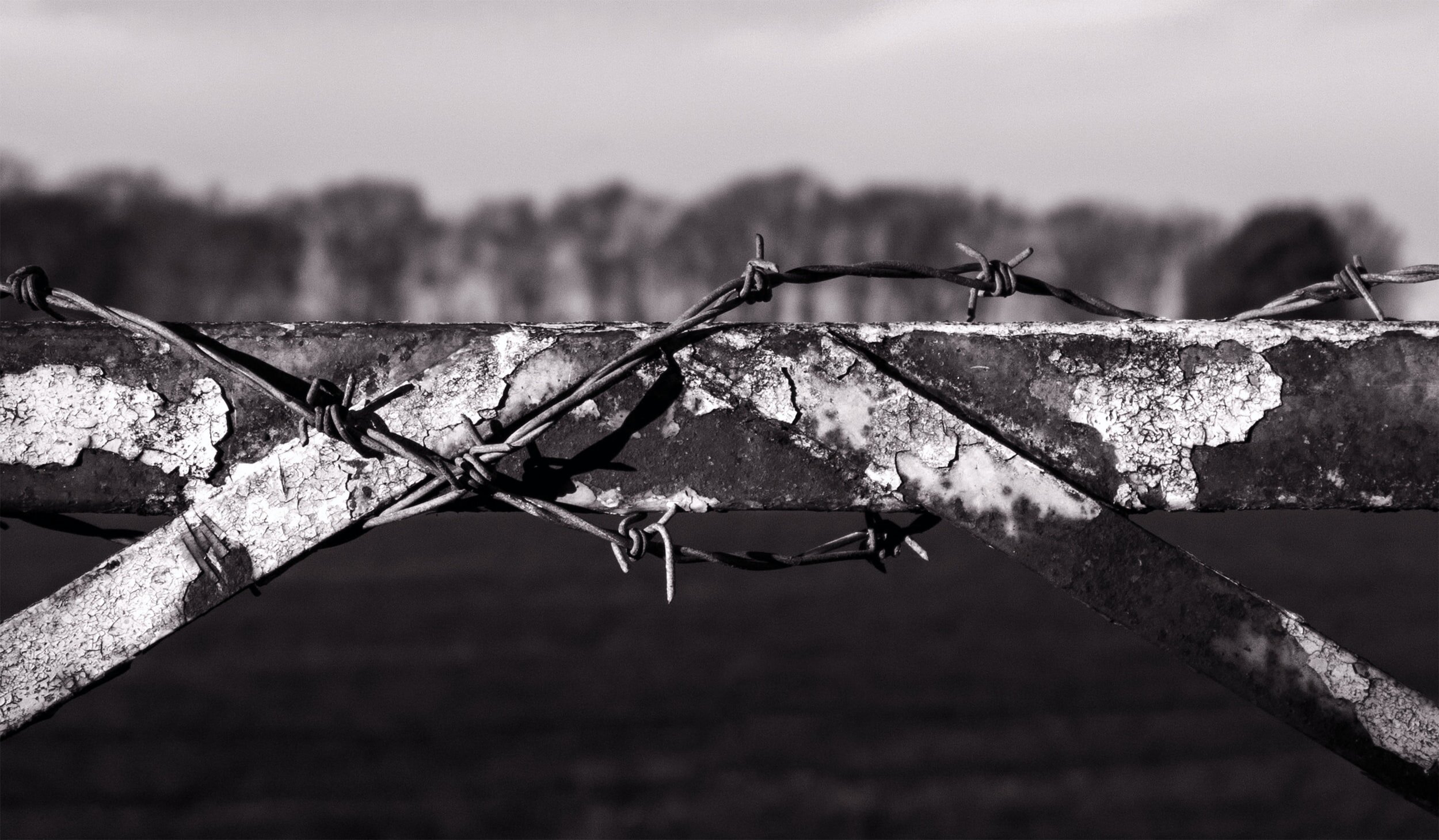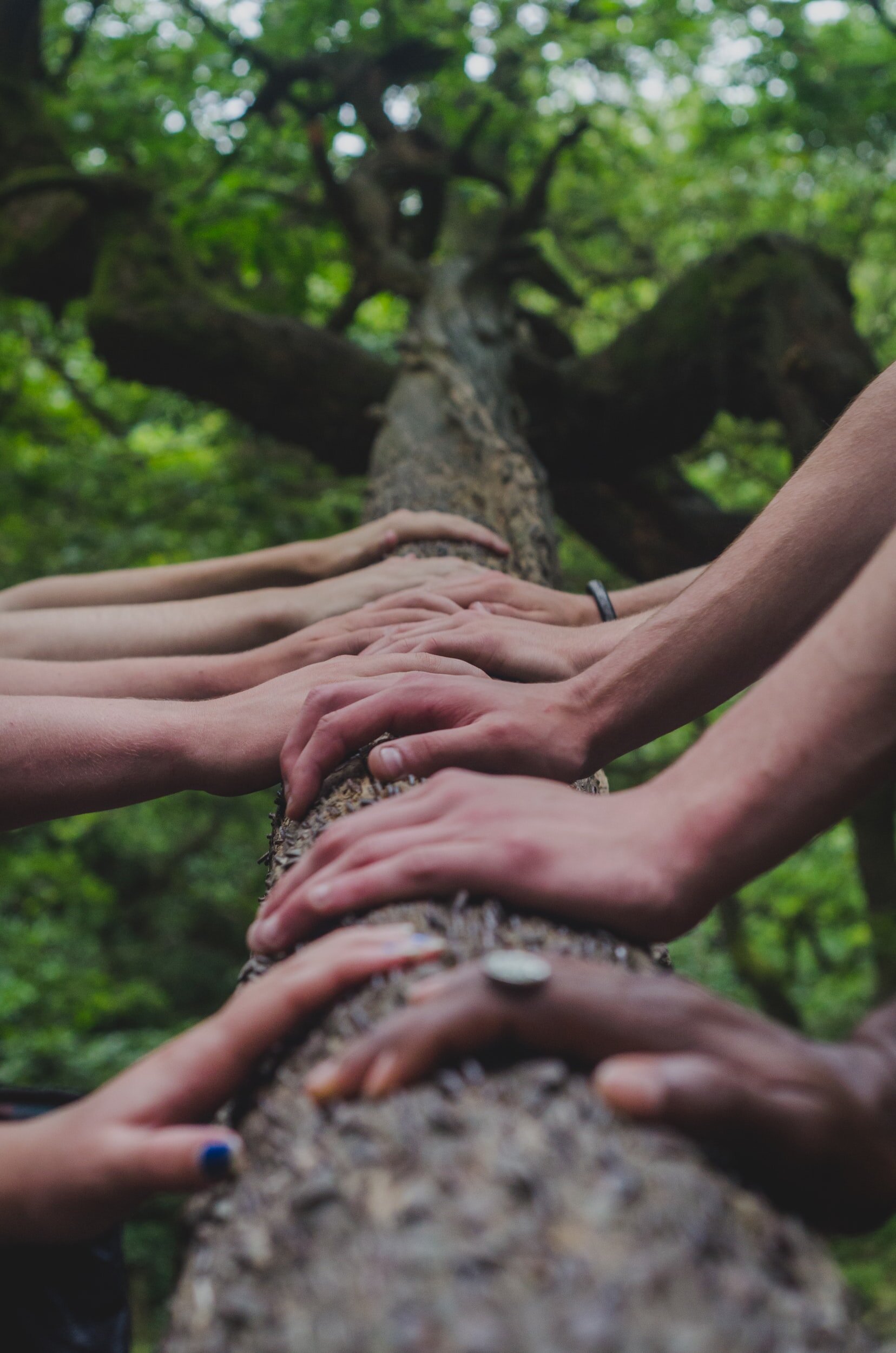The Burden Of Radical Compassion In An Angry World
Note: This piece originally appeared on Emily Montague’s Medium page and has been featured in the CARRE4 publication.
Empathy is hard. This may not be a radical statement, but look around you — right now, more than ever, compassion is a controversial thing to feel. And not without reason, when you consider the forces standing against it.
All over the world, people are feeling the sting of ignorance, of fear, and of the perennial greed for power that is painfully and predictably human. Those on the receiving end of this sting can hardly be expected to cast aside the need for survival and embrace compassion as a mode of life.
Anger is a survival mechanism. It lets us know when something is wrong, when we need to react in order to preserve our safety and the safety of our loved ones — our tribe. Asking those whose safety is being directly threatened to push it aside is not only useless, but negligent.
It is not the duty of the oppressed to exercise compassion. It is the duty of the comfortable.
To fulfill that duty, we have to embrace the intense discomfort that accompanies true, boundary-breaking empathy. This is not an exercise that comes easily. Accepting that we, the undeniably privileged, are responsible for preserving global empathy is a complex endeavor. Most of the time it will not earn us any accolades from either side of the oppression equation, and we have to accept that with humility.
What does it mean to be radically compassionate? It means to be actionable without being reactionary. It means holding yourself and others accountable while also knowing when it’s time to step back. It is challenging ignorance while also understanding, often intimately, where that ignorance comes from. It means building bridges when you’d rather burn them to the ground.
It is not a willingness to fall into useless and morally risky platitudes. It is not the saying of statements such as “there are very fine people on both sides” when one side is categorically wrong.
It is rather the ability to say, “one side is wrong, and because I stand with the oppressed, I must go and find out why the wrong side became this way in the first place.” And while racism, xenophobia, antisemitism, and hatred do not have a valid explanation, turning the tide nonetheless requires us to unravel their justifications closely and carefully.
This is because, whether valid or not, an explanation contains within it the power needed to weaken the forces it inhabits and undermine their ability to do harm.
This is not an assertion made without historical context.
Much has been said regarding the principles of the late Martin Luther King, Jr. when it comes to methods for activism. Many well-qualified advocates have challenged the idea that he was a carte-blanche supporter of nonviolent (read: passive) resistance. It is reasonable to say that the conceptualization of his values — and the values of people like him — as passive is not only a disservice to the oppressed, but also a boon to the oppressor.
Radical compassion is not passive. The Reverend, in his 1964 Nobel Lecture, succinctly clarified why it is an active necessity for the accomplishment of justice:
“Violence as a way of achieving racial justice is both impractical and immoral. I am not unmindful of the fact that violence often brings about momentary results. Nations have frequently won their independence in battle. But in spite of temporary victories, violence never brings permanent peace,” (Martin Luther King Jr. Nobel Lecture, December 11, 1964. Emphasis mine).
Radical compassion is, in short, the use of empathy to reject short term victories in favor of long term change. Although leaders like Martin Luther King Jr. filled the role of both the oppressed and the radically compassionate, it is not reasonable for the radically comfortable to demand this as the norm.
In the wider sense, it is only the privileged who are truly in a position to wield wholesale nonviolence as a means for change. It is not the oppressed, who are fighting both physically and metaphysically for their own survival, who ought to be bound to those methods. It is instead those who see injustice, disagree with it, and are also members of the oppressors’ class and identifying culture that bear this responsibility.
Oppression depends on a number of factors, many of them well-studied. One such factor is the intersection of identity and the concept of inferiority vs. superiority. By now most of us have become well aware of how insidious these concepts can be, and how subtle their integration into thought and action. Identifying with a specific group or culture is integral to the human experience, and it is useless to try and undo that process.
In the case of radically compassionate activism, it is helpful for advocates to be identified with the external characteristics of the oppressor. It allows the privileged activist to engage with oppressive ideologies and identify the mechanisms by which they function. While the oppressed can often deduce these mechanisms from the outside, the ability to actively engage with them is generally impossible.
The privileged activist also has the one thing that is both their greatest weakness and their most powerful tool for creating sustainable change. That weapon is radical empathy. It is only the comfortable — those who share the privilege but not the mindset of the oppressor — who are able to know the system intimately enough to transmute it.
Empathy is defined in psychological terms as “the ability to sense other people’s emotions, coupled with the ability to imagine what someone else might be thinking or feeling.” Radical empathy is radical because it is deeply uncomfortable as well as socially controversial. It is not the playing of “devil’s advocate” to mask subconscious agreement with an oppressive identity. Instead, it is the ability to sustain dialogue with that identity, both internally and externally, for the long-term cause of justice and change.
In today’s social climate, to foster that dialogue is to risk being labeled a passive moderate or even a covert ally to the oppressor. These labels exist for a reason and it is not our task to ask the oppressed to refrain from using them, regardless of our own feelings on the matter. Our duty is to hold the dialogue that others cannot — even at the expense of our reputations and social standing.
There is no change without understanding. As is often the case, understanding — empathy — is often mistaken for approval, even when this could not be further from the truth. As we have seen time and time again, true social and political change is not an event, but a process. It cannot be otherwise, as people themselves are not events, but rather a collection of identities, beliefs, and experiences.
Oppression thrives when these truths are weaponized and used to promote the kind of ignorance and hatred mentioned earlier. Oppression weakens the moment those of us who occupy these identities, beliefs, and experiences wield them not as weapons, but instead as tools for social progress. It is the process of subversion that creates lasting change, and only those on the inside of a system have the ability to truly subvert it.
When the privileged activist uses radical compassion to speak with those identified as ignorant or morally wrong, it is not because they want to understand them, or because they secretly agree with them. Just as members of explosive ordnance disposal teams must know how to create a bomb in order to defuse one and remove the threat it poses to the public, the radically compassionate must perform the role of knowing intimately the functions of oppression in order to subvert it.
While the oppressed rightly focus their energies on immediate survival, the privileged activist must not only support them, but also ensure that their long-term interests and overall goals are maintained. We are able to do this only by occupying the same spaces as the oppressor and using that occupation as a means to defuse his ability to oppress. This is a task requiring endurance, resilience, and a deep commitment to a cause that will likely take longer than one lifetime to be realized.
As Frantz Fanon postulated in his celebrated work, Black Skin, White Masks, “A man who has a language consequently possesses the world expressed and implied by that language.”
Those of us who speak the language of the oppressor — who are personally familiar with the speech and mannerisms that sustain his ideology — consequently contain within us the power to possess and redirect that language.
To be radically compassionate, one must embrace humility, judgment from all sides, and the possibility of being demonized with radical grace. We must accept the label of privilege and then transform it through dialogue and subversive action into a tool to be used for championing the unprivileged. We must know our place, and we must know it with an unflinching acceptance of how that place operates on ours and others’ lives.
We must be radical listeners to both sides of painful divides and radical allies in our willingness to sacrifice comfort, reputation, and societal approval for the cause of justice. To be radically compassionate is to live in the shadows of both sides of a divide while knowing that your true purpose is to serve only one of them, the oppressed — and this one side is not required to acknowledge you or focus any energy on what you are trying to do.
For those of us living in the realm of privilege, this is an unfamiliar task. It is much easier to loudly refute the oppressor, to put on the same uniform as the oppressed and allow their acceptance of your presence to be mistaken for an absorption of it. The privileged cannot take on the identity of the oppressed without being guilty of gross hypocrisy, however, and verbal refutation of a system is not the same thing as a true, dedicated action to end it.
Lasting change demands sacrifices of us all. For the oppressed, those sacrifices hardly need to be stated; they endure them every day and with every action they take to be heard, known, and respected. For the privileged the sacrifices are more subtle. We cannot cast off our privilege, because it exists independent of our wishes or principles. We cannot turn our privilege into an over-identification with the oppressed, because we are not oppressed.
Our only option as moral agents is to accept and use our privileged identity to amplify the influence of those who are fighting injustice on the front lines. This is the other, actionable side of refutation that we are responsible for engaging with. We will do it through subtle but powerful actions, through the things we do and say and think in our homes, our schools, our work environments.
We will do it through listening, through reluctant but necessary empathy toward people who we find not only distasteful, but also uncomfortably familiar. By choosing not to run from that familiarity we are able to seize the reins of our shared identity and steer it away from the paths that oppression uses to sustain itself. It will be a lonely task at times, but eventually you will bring about changes which add up to something that outlives you.
While the oppressed focus their energies on their survival, we must support them. Our responsibility doesn’t end there, however. We must also use the breathing room our privilege affords to give the unprivileged a foundation that will outlive the urgency of the moment.
Change is almost always recognized in hindsight. The present often hides progress until we are able to stop, breathe, and look to find a new world spinning around us. It may be our children who first see that new world, or perhaps our children’s children. Our job is to focus on what we can do to put the bricks in place, removing them one at a time from the foundations of oppression and using them to build a new system that will outlast us.
This is not glamorous work, but it is honest, and it is important. The impact of radical compassion will far outlive the sacrifices it asks of us — and that, more than anything, is why injustice has no hope of standing against it.
The views, thoughts, and opinions expressed in this article belong solely to the author, and do not necessarily reflect the position of The Fem Word organization. Any content provided by our authors are based on their opinions and are not intended to malign any religion, ethnic group, club, organization, company, individual or anyone or anything.







